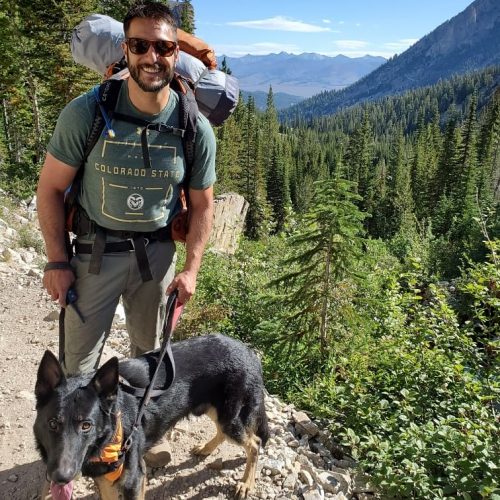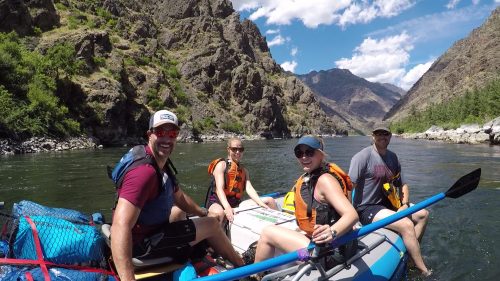This year we have all experienced a multitude of influential events in our lives that have changed how we think, ranging from the COVID19 virus, the stay at home and work from home orders, home schooling, social unrest, racial inequality, climate change, wildfires, drought, and the extreme weather events and excessive heat as of recently. During the pandemic, I did some deep self-reflection to identify what was important to me, and I found myself leaning into nature to ensure my mental, physical, and emotional health were being maintained. I found myself going on three to four short walks a day to recharge from all of the new screen time.
ensure my mental, physical, and emotional health were being maintained. I found myself going on three to four short walks a day to recharge from all of the new screen time.
This last year, it became very evident just how important family and the outdoors are to me. When I was a child and young man, my family taught me about the outdoors by taking me hiking, camping, fishing, and hunting. I have vivid memories from these influential experiences. As a proud involved uncle and soon-to-be-father, it is extremely important to me that our future generations can have similar experiences in the outdoors. If our children don’t know and understand nature, then our natural places won’t resonate with them, and they won’t know that they need our protection.
This is what has pushed me and helped me find my voice as an advocate for the outdoors. On this journey, it also became evident to me that there are people in our country who don’t have the same privileges that I have, such as easy to access, beautiful, and safe places to walk. My ability to go on those resiliency walks has also been affected by air quality concerns due to wildfire smoke and excessive heat. Climate change, drought, wildfires, and extreme weather are impacting us all, but they more deeply affect those of lower socioeconomic status, including many People of Color.
 As a Colorado angler, I stay tuned into the issues that affect the Colorado River and its various tributaries—my home waters. Recently, I learned that the Colorado River provides drinking water for 40 million people in seven states. Those states are home to one-third of the U.S. Latino population and 30 different Native American Tribes.
As a Colorado angler, I stay tuned into the issues that affect the Colorado River and its various tributaries—my home waters. Recently, I learned that the Colorado River provides drinking water for 40 million people in seven states. Those states are home to one-third of the U.S. Latino population and 30 different Native American Tribes.
Lake Mead and Lake Powell are respectively only 36 and 34 percent full as of today. This is due to the Colorado River Basin being in a mega-drought that has extended now beyond 20 years, and recent hydrology reports don’t indicate a significant deviation from that drought. Several other river basins in the West are also experiencing similar conditions.
Currently, several nongovernmental organizations and state and federal agencies are asking for the public to engage with them on water planning and decision-making. There is no better time for the Latino Community to engage in advocacy for conservation and help shape the world we want to see.
them on water planning and decision-making. There is no better time for the Latino Community to engage in advocacy for conservation and help shape the world we want to see.
Humans are part of the ecosystem and human, animal, and environmental health are all interconnected. Conservation works when we work together, and together we can thrive! Please join me in engaging and advocating for conservation. Do it for yourself, for nature, for those who are being disproportionately affected by climate change, and for our future generations. #advocacyafuera